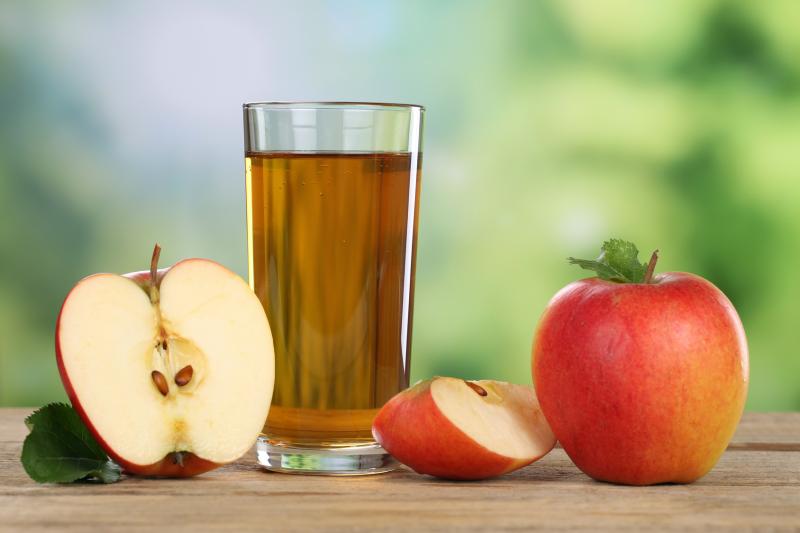 Kids suffering from diarrhea are likely to recover faster if given diluted apple juice along with a favourite drink rather than oral rehydration solutions.
Kids suffering from diarrhea are likely to recover faster if given diluted apple juice along with a favourite drink rather than oral rehydration solutions.The inclusion of two proanthocyanidin (PA)-rich apples into normal diets improves cardiovascular disease (CVD) risk factors by reducing total cholesterol (TC), low-density lipoprotein cholesterol (LDL-C) and intercellular cell adhesion molecule-1 (ICAM-1), as well as increasing microvascular vasodilation, in individuals with mildly elevated serum cholesterol concentrations, a recent study has shown.
“Apples are rich in bioactive polyphenols and fibre,” the researchers said. “Evidence suggests that consumption of apples or their bioactive components is associated with beneficial effects on lipid metabolism and other markers of CVD.”
Forty healthy volunteers with mild hypercholesterolaemia (mean age, 51±11 years; mean body mass index, 25.3±3.7 kg/m2) were randomly assigned to consume either two apples/d (Renetta Canada apples, rich in PAs) or a sugar- and energy-matched apple control beverage (CB) for 8 weeks each, separated by a 4-week washout period.
The researchers collected fasted blood before and after each intervention. They also measured serum lipids, glucose, insulin, bile acids, and endothelial and inflammation biomarkers, in addition to microvascular reactivity, using laser Doppler imaging with iontophoresis, and arterial stiffness, using pulse wave analysis.
Consumption of whole apple, compared with the CB, reduced serum TC (5.89 vs 6.11 mmol/L; p=0.006) and LDL-C (3.72 vs 3.86 mmol/L; p=0.0310), triacylglycerol (1.17 vs 1.30 mmol/L; p=0.021), and ICAM-1 (153.9 vs 159.4 ng/mL; p=0.028), and increased serum uric acid (341.4 vs 330 μmol/L; p=0.020). [Am J Clin Nutr 2020;111:307-318]
Whole apple consumption also led to significantly greater response to endothelium-dependent microvascular vasodilation than the CB (853 vs 760 perfusion units; p=0.037). On the other hand, apples did not show any effect on blood pressure or other CVD markers.
“The matrix of a whole food, such as apples, can affect the release of nutrients (eg, sugars, fibre and polyphenols) as well as their fate and function in the body compared with a simple sugar beverage,” the researchers said. [Nutrients 2015;7:3959-3998]
Two early studies involving moderately hypercholesterolaemic participants found that 2–3 apples per day decreased TC from baseline. However, no controls were included. [Irish J Food Sci Tech 1977;1:117-128; Nutr Res 1983;3:325-328]
In contrast, other studies in normocholesterolaemic, hypercholesterolaemic and elderly individuals reported no effects, or even adverse effects on blood lipids. [J Med Food 2000;3:159-166; Nutrition 2003;19:253-256; Exp Aging Res 2007;33:429-437; Int J Prev Med 2011;2:94-100]
“More recently, and in support of our results, [a study reported that] TC and LDL-C decreased after the daily consumption of 2 Annurca apples (200 g/d),” the researchers said. [J Sci Food Agric 2017;97:2107-2115]
The reduction in serum TC could be attributed to the fibre fraction in apples, particularly pectin. Polyphenols may also have a significant role in this effect. [Nutrients 2015;7:3959-3998]
“Dose- and structure-response studies are necessary to explore the potential mechanisms, which are likely to involve bile acid signaling and/or small phenolic acids derived from apple polyphenols, both linked to gut microbiota metabolism,” the researchers noted.